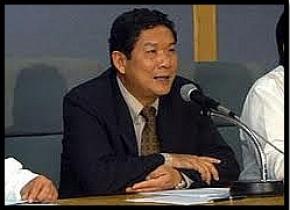ID :
188509
Tue, 06/14/2011 - 13:56
Auther :
Shortlink :
http://m.oananews.org//node/188509
The shortlink copeid
BAAC-KU propose new fund to cushion Thai farm products prices

BANGKOK, June 14 (TNA) - Thailand's Bank for Agriculture and Agricultural Cooperatives (BAAC) and Kasetsart University are proposing a new fund to protect Thai farmers from fluctuating prices of agricultural products, in addition to the government’s produce price insurance scheme and the previous agricultural product mortgage scheme.
BAAC Vice President Boonchuay Jiadamrongchai said Tuesday that BAAC and Kasetsart University would propose the new fund project to the next Thai government so that it could be another choice to help local farmers, and that both pros and cons of the fund would be presented to the government.
Boonchuay noted that academics are also studying how to convince local farmers to be members of the new fund, to which members will contribute when their produce prices are high, but when the prices drop, the new fund can be used for price intervention.
According to the BAAC vice president, the Thai government will also contribute to the proposed fund to be used to cushion the prices of Thai economic crops, namely rice, cassava and maize.
Meanwhile, Monchai Phinitjitsamut, an economist of Kasetsart University, said that the fund appears to be suitable for agricultural products with fluctuating prices, cautioning if it is applied to the products with only rising prices, local farmers who are fund members will always have to contribute to the fund and if the fund is applied to the products with only declining prices, money will keep flowing out of the fund.
Monchai suggested that the fund should be a short-term one to handle produce prices in the next decade, not a permanent instrument, as concerned agencies or the BAAC may have to spend up to 100 million baht on managing it yearly. (TNA)
BAAC Vice President Boonchuay Jiadamrongchai said Tuesday that BAAC and Kasetsart University would propose the new fund project to the next Thai government so that it could be another choice to help local farmers, and that both pros and cons of the fund would be presented to the government.
Boonchuay noted that academics are also studying how to convince local farmers to be members of the new fund, to which members will contribute when their produce prices are high, but when the prices drop, the new fund can be used for price intervention.
According to the BAAC vice president, the Thai government will also contribute to the proposed fund to be used to cushion the prices of Thai economic crops, namely rice, cassava and maize.
Meanwhile, Monchai Phinitjitsamut, an economist of Kasetsart University, said that the fund appears to be suitable for agricultural products with fluctuating prices, cautioning if it is applied to the products with only rising prices, local farmers who are fund members will always have to contribute to the fund and if the fund is applied to the products with only declining prices, money will keep flowing out of the fund.
Monchai suggested that the fund should be a short-term one to handle produce prices in the next decade, not a permanent instrument, as concerned agencies or the BAAC may have to spend up to 100 million baht on managing it yearly. (TNA)





